“Miracle Lady” Rita Van Meter Shares Her Memories Through Homeland’s My Life, My Legacy Program
Rita Van Meter of Lewistown was known as the “miracle lady”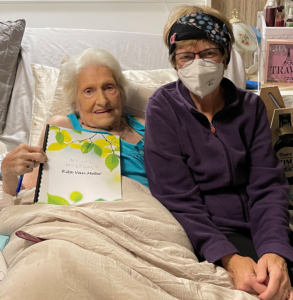 by staff at Geisinger Lewistown Hospital after she survived a medical episode in August of 2022. During her hospitalization, Rita suffered a heart attack and received last rites from her priest at Sacred Heart Church of Lewistown. She spent nine days in the hospital followed by one month in a nursing home. Rita turned to the services provided by Homeland Hospice, a nonprofit hospice program that serves communities throughout Central Pennsylvania, which enabled her to return home and live independently. Rita’s strength to overcome medical milestones is just one of the many chapters in the story of her life. She recently shared her life story through Homeland Hospice’s My Life, My Legacy program.
by staff at Geisinger Lewistown Hospital after she survived a medical episode in August of 2022. During her hospitalization, Rita suffered a heart attack and received last rites from her priest at Sacred Heart Church of Lewistown. She spent nine days in the hospital followed by one month in a nursing home. Rita turned to the services provided by Homeland Hospice, a nonprofit hospice program that serves communities throughout Central Pennsylvania, which enabled her to return home and live independently. Rita’s strength to overcome medical milestones is just one of the many chapters in the story of her life. She recently shared her life story through Homeland Hospice’s My Life, My Legacy program.
My Life, My Legacy was launched last year to help hospice patients preserve their memories and tell their life stories. Through the effort, a hospice volunteer meets personally with the patient and their family to ask a series of questions about the patient’s life. The volunteer records the responses and allows the family to add their thoughts and recollections as well as photographs. The result is a printed book for the patient to help find peace and pride in their life story. The book also helps families preserve memories after their loved one passes.
Rita worked with Kandy, a recent retiree and volunteer, over the course of several months to share her memories and work through the series of questions. The book was completed in February of 2022.
“I didn’t know what to think about the project at first,” Rita says. “After a while it was just like talking to a longtime friend.”
Rita, a mother of five children, is a vivacious, politically-active self-starter who deeply loves her family. For her, family extends to friends of her children, neighbors and anyone in need of a helping hand. Rita believes her call to help others stems from the social and political time she was born.
Rita was born in 1935 when the country was in the depths of the Great Depression. At the time, our country had an unemployment rate of 20%. President Franklin D. Roosevelt signed the Social Security Act in August of 1935 which granted income for retirees and the unemployed. This Act was part of President Roosevelt’s New Deal to tackle the worst economic crisis ever experienced by our country. Rita was among the first wave of Americans to receive a social security card. With the card came a letter from President Roosevelt, which she still has today.
“I like to think this is why I am a Democrat,” Rita jokes. “Growing up in the Great Depression definitely influenced my passion for civic engagement.”
Throughout her work tenure, Rita served as a legislative assistant for Ruth Rudy, who represented Centre and Mifflin counties in the Pennsylvania House of Representatives. Rita loved the work because she knew the constituents and was able to help answer their questions and solve their problems.
Helping people in need of a friend is a common theme in Rita’s life. In 1989, Rita formed a nonprofit organization called Burd House, Inc., which provided a safe space for young men and women to receive help with their basic needs and education. Rita founded Burd House, which is in honor of her maiden name of Burd, by purchasing a former bakery and slowly transforming it with a kitchen, dining room, laundry service and recreational area. At any one time, up to 50 young adults could be found receiving tutoring, grabbing dinner and enjoying the company of friends at Burd House.
During its 20-plus years of operation, Rita impacted hundreds of lives through Burd House. Her small acts of kindness were miracles for many lost souls in need of a friend. Through the My Life, My Legacy program, Rita had an opportunity to relive countless happy memories of camping trips to Hidden Valley Camp Ground and special Christmas dinners with the men and women of Burd House.
Rita’s life story is special and unique, just like her. The beauty of My Life, My Legacy is that it is not a cookie-cutter approach to storytelling, rather it is a framework driven by the patient’s memories and experiences.
“Each story is distinctive based on the patient,” says Laurie Murry, Volunteer Coordinator for Homeland Hospice. “We focus on the topics that interest the patient.”
For Rita, her interests and passions are more than memories. Through her actions, Rita put in place tangible actions to change the lives of young men and women. These actions continue to ripple throughout the world today.
For more information about the My Life, My Legacy program, call Laurie Murry at (717) 221-7890.

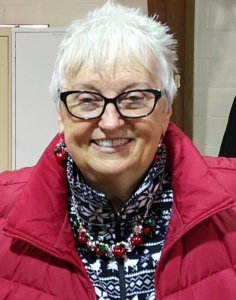 but since moving into her personal care suite, people can see a difference.
but since moving into her personal care suite, people can see a difference.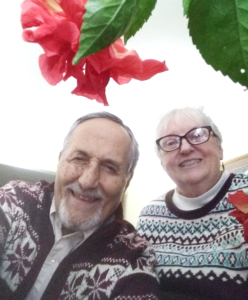 to be mistreated.”
to be mistreated.”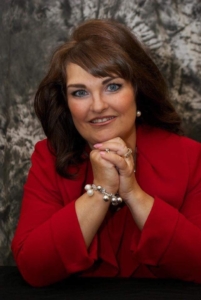 She is a Gold Star mother, nurse, volunteer and tireless advocate for victim’s rights. She is a steadfast fighter for those who need a champion, and believes every experience has a silver lining. Suzanne is marshalling her strength and faith to add cancer survivor to her list of titles. With the help of Homeland’s Palliative Care team, Suzanne has developed a path to medical treatment which puts her at the center of care.
She is a Gold Star mother, nurse, volunteer and tireless advocate for victim’s rights. She is a steadfast fighter for those who need a champion, and believes every experience has a silver lining. Suzanne is marshalling her strength and faith to add cancer survivor to her list of titles. With the help of Homeland’s Palliative Care team, Suzanne has developed a path to medical treatment which puts her at the center of care.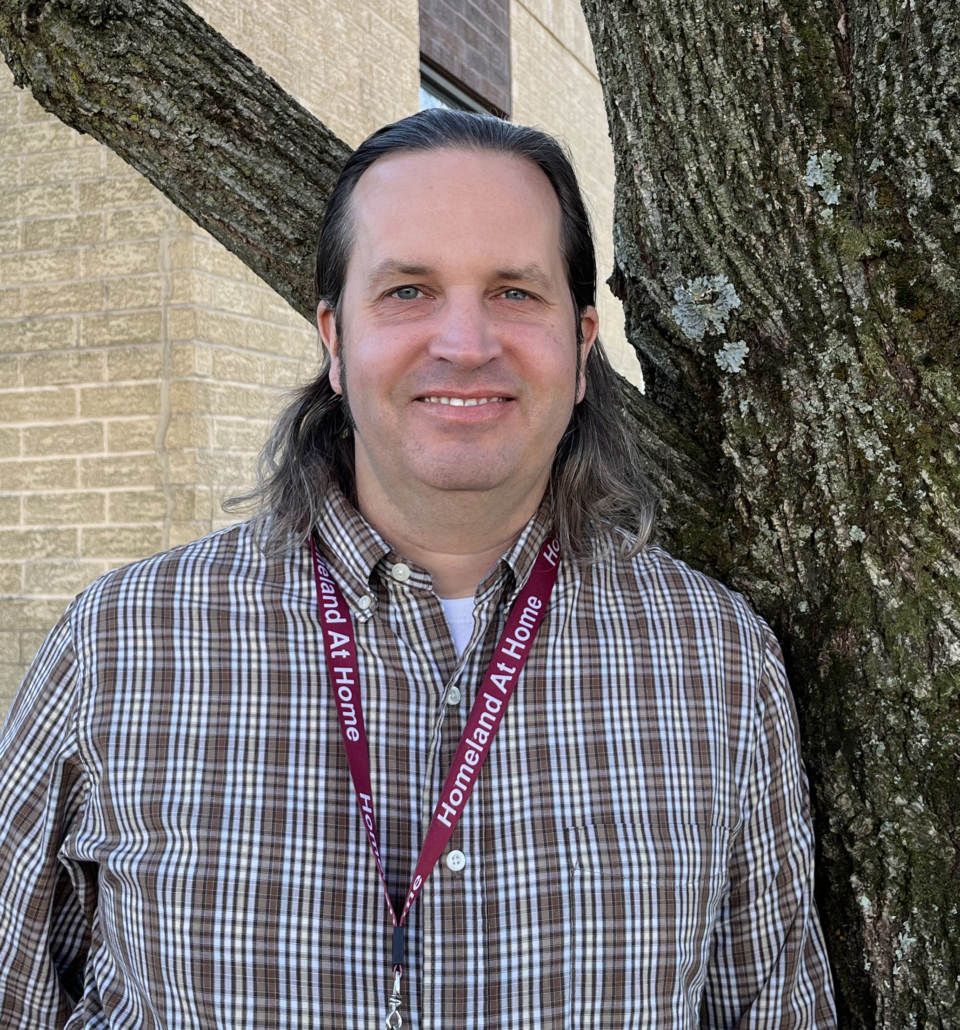 Though Todd Carver grew up watching his father serve as a pastor in Hagerstown, Maryland, he wasn’t sure whether he wanted to take a similar path.
Though Todd Carver grew up watching his father serve as a pastor in Hagerstown, Maryland, he wasn’t sure whether he wanted to take a similar path.

